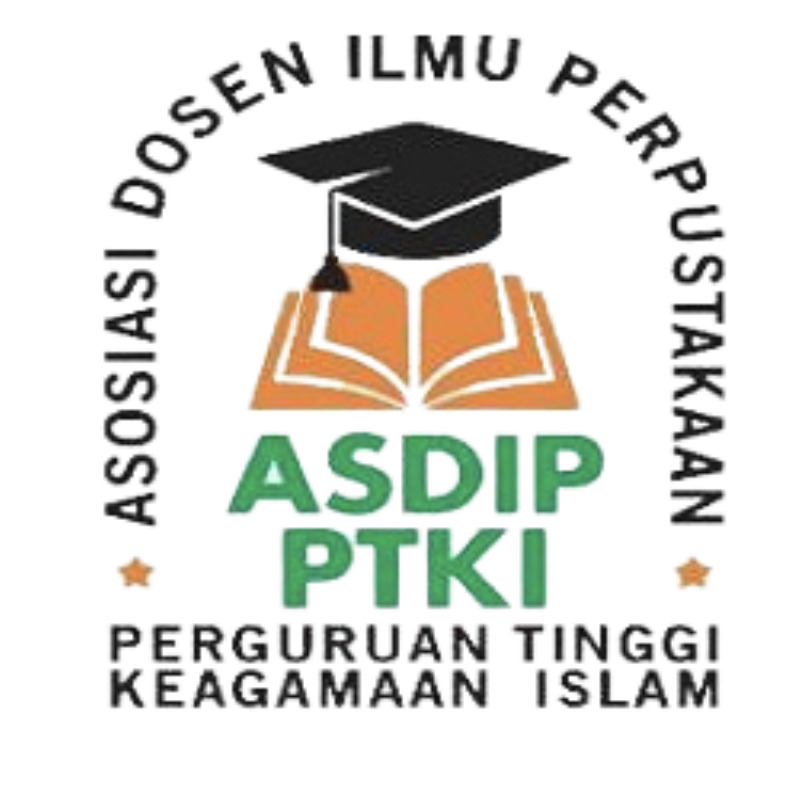Gaya Kepemimpinan Kepala Pepustakaan Institut Agama Islam Negeri Langsa Berdasarkan Emotional Intellegience
DOI:
https://doi.org/10.29240/tik.v6i1.3819Keywords:
Leadership Style, Information Globalization, Emotional IntelligenceAbstract
Leaders are the main key to management, meaning that management goals will be achieved if they have a leader who is firm, wise and professional. The emotional intelligence of a leader plays an important role in an organization and the people who work in it, especially in the library where information is managed. The purpose of this article is to determine the leadership style in dealing with the globalization of information in the Langsa State Islamic Institute library based on emotional intelligence. This article is a qualitative descriptive article with data collection techniques using observation, interviews and literature study. Based on the results of the study, it is known that the leadership at the Langsa State Islamic Institute Library has made the library develop very well in overcoming the globalization of information for the user community, both students, academics and the general public. This is done by the head of the library. Under his leadership, the librarian of the Langsa State Islamic Institute of Religion has implemented a leadership style based on emotional intelligence that includes visionary, mentoring, affiliative, democratic, pacesetter, and governing in today's era of information globalization. A good leadership style based on emotional intelligence is needed in libraries, especially in the face of globalization of information as it is now.
Downloads
References
Chandra, G. (2010). Panduan Pendamping Kecerdasan Emosional. Manuscript.
Ferdiansyah, M. (2018). Analisis Pengaruh Gaya Kepemimpinan Transformasional, Kompensasi dan Program Pelatihan terhadap Employee Engagement Serta Dampaknya terhadap Kinerja Karyawan Di PT Angkasa Pura II (Persero). Jurnal Dinamika Manajemen Dan Bisnis, 1(2). Diakses 06 April 2022.
https://doi.org/https://doi.org/10.21009/JDMB.01.2.09
Fred Luthans. (2009). Perilaku Organisasi. Edited by sepuluh. Yogyakarta: Andi Offset.
Goleman, D. (2002). Emotional Intelligence. Gramedia Pustaka Utama.
Labbaf, H. (2011). The Impact of the Emotional Intelligence on Dimensions of LearningOrganization : The Case of Isfahan university. Interdisciplinary Journal Of Contemporary Research In Business, 3(5). Diakses 20 Desember 2021.
https://journal-archieves8.webs.com/536-545.pdf
Martha Wabaa, Alden Laloma, V. L. (2014). Pengaruh Globalisasi Informasi Terhadap Kehidupan Sosial Budaya Generasi Muda (Suatu Studi Di Sma Negeri 1 Beo Kabupaten Kepulauan Talaud). Jurnal Administrasi Publik, 4(5). Diakses 05 April 2022.
https://ejournal.unsrat.ac.id/index.php/JAP/article/view/5869
Michael Amstrong. (2003). Manajemen Sumber Daya Strategik. Bhuana Ilmu Populer.
Nurfadlliah. (2018). Analisis Gaya Kepemimpinan Kepala Perpustakaan (Studi Kasus Perpustakaan Grahatama Pustaka Yogyakarta). Uni Lib Jurnal Perpustakaan, 9(1), 45–50.
Rodin, R. (2012). Transisi Masyarakat Indonesia Menuju Masyarakat Informasi. Jurnal Ilmu Informasi & Perpustakaan, IV(2). Diakses 21 Desember 2021.
http://journal.unair.ac.id/download-fullpapers-palim9b3452ac9bfull.pdf
Romanus Beni. (2002). Transisi Masyarakat Informasi Indonesia: Suatu Pemikiran Awal, dalam Sekapur Sirih Pendidikan Perpustakaan di Indonesia. KOMPAS.
Shinta Nofita Sari, F. K. S. (2020). Gaya Kepemimpinan Situasional Di Perpustakaan Jaringan Dokumentasi dan Informasi Hukum Kabupaten Sleman. Jurnal Pustaka Ilmiah, 6(1). Diakses 19 Desember 2021. https://jurnal.uns.ac.id/jurnalpustakailmiah/article/view/41098
Sri Utari, M. M. H. (2020). Gaya Kepemimpinan Demokratis Perpustakaan Kota Yogyakarta (Studi Kasus). Jurnal Pustaka Ilmiah, 6(1). Diakses 07 April 2022.
https://jurnal.uns.ac.id/jurnalpustakailmiah/article/download/41095/28290
Stephen P Robbins. (2007). Perilaku Organisasi. Alih Bahasa: Hadyana Pujaatmaka, Indeks Kelompok Gramedia.
Sugiyono. (2013). Metode Penelitian Kuantitatif, Kualitatif, Dan R&D. Alfabeta.
Suprihatin, E. W. (2021). Kepemimpinan Tipe Developer di Dinas Perpustakaan dan Kearsipan Kulon Progo Dalam Masa Pandemi Corona. Al Maktabah, 6(1). Diakses 16 Maret 2022.
https://doi.org/10.29300/mkt.v6i1.4436
Sutarno NS. (2005). Tangungg Jawab Perpustakaan: dalam Mengembangkan Masyarakat Informasi. Panta Rei.
Sutarno NS. (2006). Manajemen Perpustakaan. Sagung Seto.
Trisna Ayu Anggraini, L. A. M. (2021). Karakteristik Kepemimpinan Situasional Terhadap Kinerja Karyawan Old Town White Coffee. Jurnal AKTUAL, 19(1). Diakses 06 April 2022.
https://stietrisnanegara.ac.id/jurnal/index.php/aktual/article/download/70/pdf
Undang-Undang Republik Indonesia Nomor 43 Tahun 2007 Tentang Perpustakaan. Diakses 21 Desember 2021.
https://www.perpusnas.go.id/law-detail.php?lang=id&id=170920114322Ir9g6HhRuc
Veithzal Rivai. (2006). Manajemen Sumber Daya Manusia untuk Perusahaan : dari Teori Ke Praktik. Raja Grafindo Persada.
Veithzal Rivai. (2008). Kepemimpinan dan Perilaku Organisasi (Kedua). PT. Raja Grafindo Persada.
Wibowo. (2014). Perilaku Dalam Organisasi. Rajawali Pers.
William Martin. (1995). The Global Information Society. Aslib Gower
Downloads
Published
Issue
Section
Citation Check
License
Authors who publish with Tik Ilmeu : Jurnal Ilmu Perpustakaan dan Informasi agree to the following terms:
- Authors retain copyright and grant the journal right of first publication with the work simultaneously licensed under a Creative Commons Attribution-NonCommercial-ShareAlike 4.0 International License (CC BY-NC-SA 4.0) that allows others to share the work with an acknowledgment of the work's authorship and initial publication in this journal.
- Authors are able to enter into separate, additional contractual arrangements for the non-exclusive distribution of the journal's published version of the work (e.g., post it to an institutional repository or publish it in a book), with an acknowledgment of its initial publication in this journal.
- Authors are permitted and encouraged to post their work online (e.g., in institutional repositories or on their website) prior to and during the submission process, as it can lead to productive exchanges, as well as earlier and greater citation of published work (See The Effect of Open Access).







 This work is licensed under a
This work is licensed under a 